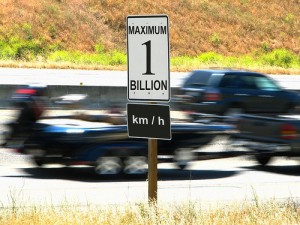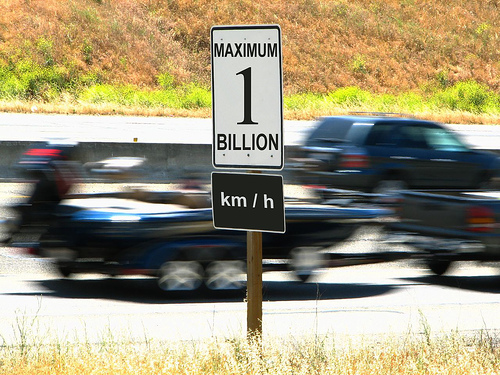I’m limited. I fight that about myself. I hate being restricted in time, energy and capabilities. I wish I could do it all. I wish I could function on less sleep. I wish I could hang out with more friends each week. I resist my limits.
 Our culture doesn’t help either. Everywhere I look, I see slogans promising boundless supply of whatever I am looking for:
Our culture doesn’t help either. Everywhere I look, I see slogans promising boundless supply of whatever I am looking for:
Unlimited talk and text.
Unlimited calling in North America.
Unlimited refills.
Bottomless fries.
Feeling tired? No problem. A good shot of caffeine will fix you. Not enough money? That’s what credit cards are for. Need to be in two places at once? Just hire a body double! The sky’s the limit.
There’s something in us that feels unsatisfied with the fact that we have limits. And so we push the boundaries and try to figure ways to get around them. We wish all roads could be like the Autobahn in Germany where you can go as fast as you want.
There is a proper place for striving for improvement, for beating personal records and breaking world records. But on the whole, I think we have lost sight of the truth that we are limited for a reason; that limits are good for us.
Limits remind us that we are human. That we need care. That we are finite creatures. Limits can point us to God, if we let them. When I come to the place where I am at the end of what I can do, my limits invite me to trust God to take care of the rest.
Limits also prompt us to be content. To consider what we already have instead of always looking for what we don’t have. When I live within my limits, I can truly be at rest because I am not stretched to the max or stretched beyond the max.
When it comes to society’s view on limits, there’s a nugget of wisdom from an unlikely source. The BC Lottery Corporation has a slogan that says, “Know your limit, play within it.” If we heeded their advice for more than gambling, we would be better off, I think.
So these days, when I’m tempted to lament my limits, I pause and tell myself that this is good. That I can be thankful for them. After all, imagine if we had no skin to define the perimeters of our bodies. We would be in trouble, wouldn’t we?
photo credit: jpctalbot via photo pin cc